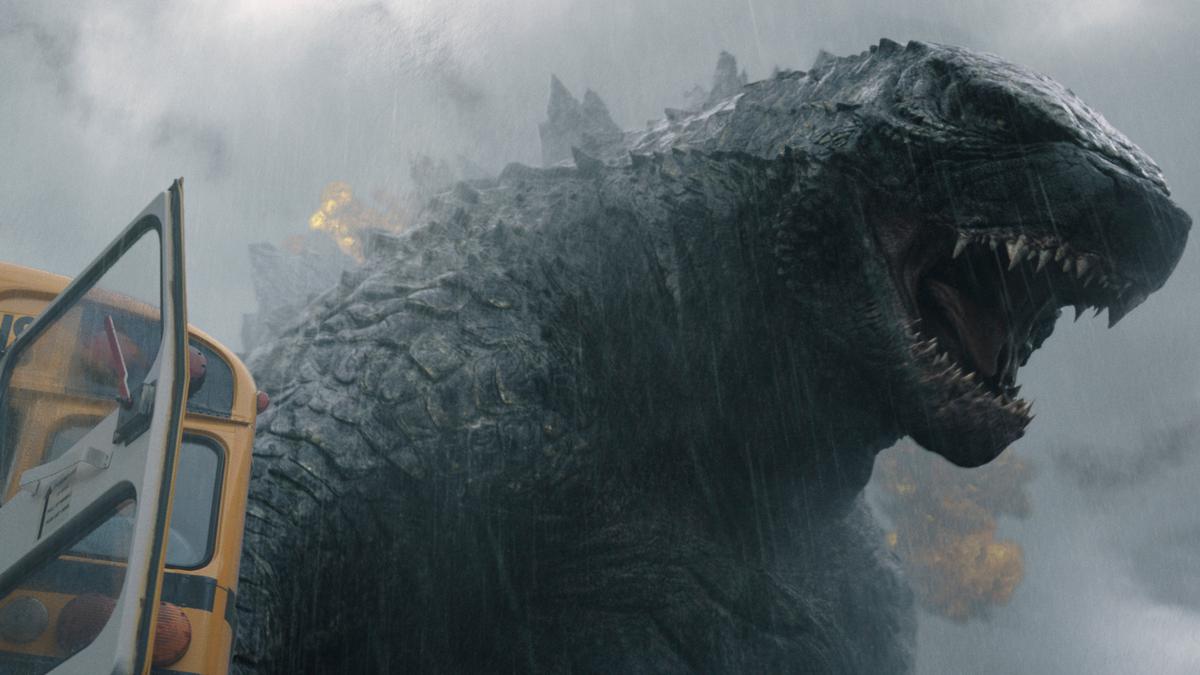
‘Monarch: Legacy of Monsters’ series review: Godzilla roars back to life with an exciting and rich new experience
The Hindu
Despite giving in to the tropes of what makes a kaiju watch satisfying, the Apple show expands its canvas to make this a meaningful addition to the MonsterVerse franchise
Next year will be the 70th year of Godzilla’s iconic roar reverberating across our screens. A deep screech that has bellowed for over seven decades, it has remained a constant as the monster has shifted shape, size, and purpose. What emerged as a manifestation of the early atomic age — and its disproportionate effects on certain countries — has since been propped up as a rather hard-to-contain participant in a cage fight. However, AppleTV+’s latest show, Monarch: Legacy of Monsters makes an ambitious effort to balance both these strains and learn from Godzilla’s past the foundations of this franchise, so that its future can be built on steady grounds.
Monarch, in its 10-episode run establishes a familiar but exciting pattern of following two trios, decades apart. In 2015, a little over an year after the events of “G-day” (what transpired in the 2014 Godzilla film), Cate Randa (Anna Swai) travels across the globe to pack up her father’s belongings in Tokyo. She soon discovers that there might be a few hidden skeletons in her father’s closet (some even Titan sized!), and finds herself entangled in the business of Monarch, the shadowy organisation that tracks Godzilla and its other monster compatriots. As she attempts to seek out what is left of her father, Cate is joined by Kentaro (Ren Watabe), and May (Kiersey Clemons). Almost six decades ago, in the 1950s, scientist Keiko Miura (Mari Yamamoto) chases monsters only ever heard of folktales. She is aided in her mission to meet study Godzilla by another researcher Bill Randa (Anders Holm), and Army officer Lee Shaw (Wyatt Russell).
Also Read | With cinemas shutting across the world, will there be room only for ‘event’ cinema like ‘Godzilla vs. Kong’?
The show switches frequently between these two parallelly running tracks. As Keiko’s research in the 1950 lays down the roots for the establishment of the organisation Monarch, the show’s writing appears to mirror the early Ishirō Honda Godzilla films. Keiko, Randa, and Shaw’s adventures are exciting but grounded in the science of finding the truth behind these monsters. Godzilla here is unknown, feared and approached with cautious curiosity. Meanwhile, Keiko also deals with anti-Japanese sentiments in post-war America, as she cautions against the country building even bigger bombs on the pretext of killing Godzilla.
On the other hand, while Cate doesn’t voluntarily follow Godzilla’s trail, she nonetheless often finds herself (to her dismay) at Ground Zero of wherever it or other monsters appear. What follows are the spectacles we have been familiarised with in the MonsterVerse films of 2010s. Puny humans make valiant but fruitless attempts to either run away and hide from, or throw the best bombs they have at Godzilla. It is what first caught the eye of most kaiju fans — the thrill of an unbeatable towering threat that shoots forth a nuclear beam from its jaws. Subsequent films of the Godzilla franchise, especially the ones made by Hollywood, focussed on enhancing this aspect. Godzilla got taller, looked meaner, and grew indestructible, except ofcourse against its formidable opponent — King Kong. The show’s modern sequences derive inspirations from what we have enjoyed experiencing on the large screen (though Godzilla’s entry in the show doesn’t fail to elicit awe, there are some characters that are just made to be enjoyed at a bigger scale.)
However, despite giving in to the tropes of what make a satisfying kaiju film, the show also expands its canvas to make this a more meaningful experience. While the recent Godzilla films have delivered when it comes to the monsters on screen (even complicating our loyalties with Godzilla), they have fallen short when it comes to fleshing out humans beyond their use as an expository vehicle. Monarch: Legacy of Monsters plays its longer screentime of 10 episodes, to its advantage. Cate, Keiko, Shaw and Kentaro’s tales do not make us restless for the next kaiju showdown, as the show constantly measures their humanness against Godzilla’s proportions.
The latest instalment pulls from the movies that have come before it, not to build over them, but to add cohesiveness to a somewhat scattered franchise. The show’s eight episodes, available for reviewing, handle the same subject in two different tones to usher in a new way of how we reckon with the enduring image of Godzilla.











